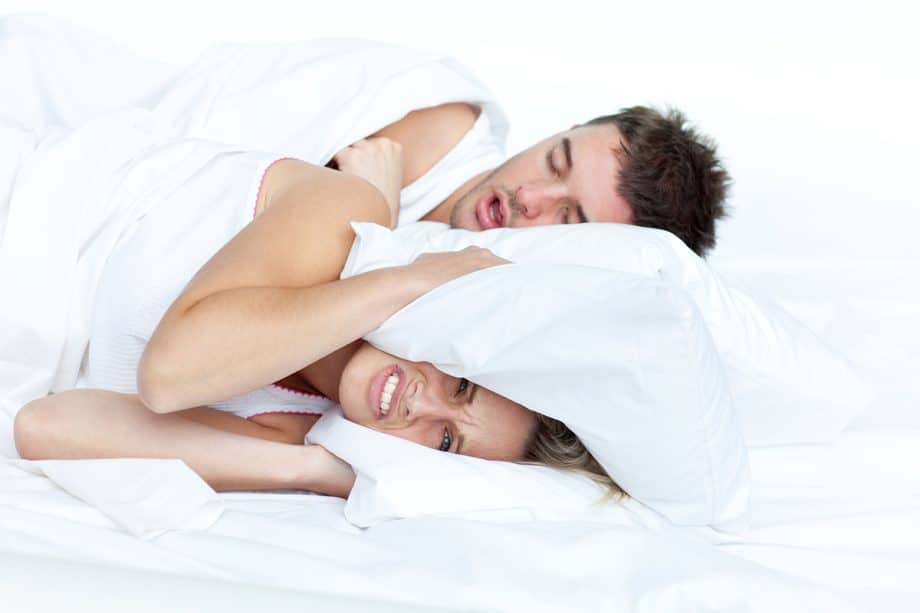It is crucial for toddlers, children, teens, and adults to breathe without disruption while sleeping. Unfortunately, millions of people in the U.S. suffer from sleep-disordered breathing conditions such as snoring, mouth breathing, and obstructive sleep apnea (OSA). But, there is good news if you or your child experience breathing interruptions while sleeping. For most people, non-surgical airway orthodontic treatments help so you can sleep easily.
Complications of Mouth Breathing
Everyone breathes through their mouth while sleeping on occasion–typically when we are congested due to a cold, allergies, or other sinus conditions. But breathing through the mouth constantly can cause significant problems with development and growth.
Chronic mouth breathing can lead to narrow dental arches and hence crooked teeth, malocclusion (open bite), and even facial deformities, such as a receding chin and narrow long face. Studies suggest that mouth breathing may even lead to the development of behavioral issues similar to those in children diagnosed with ADHD. Importantly, mouth breathing may be a symptom of obstructive sleep apnea, which can pose serious risks to your child’s health.
In Castle Hills 3D Orthodontics, TX, Dr. Seif provides airway orthodontics. She applies holistic pediatric orthodontics that considers teeth, face, soft tissue with the overall child’s health. She treats mouth breathing with oral appliances that help to develop the dental arches and/or advance the receding lower jaw. By expanding the arches and advancing the lower jaw, more space will be created for the tongue to allow normal swallowing and normal development of the dental arches and the whole face. the sinuses can open fully, thereby enabling children to breathe easily through their noses.
Snoring: Harmless or Harmful?
Snoring is caused by an airflow restriction or blockage in the upper airway behind the nose. The sound created when snoring is due to fluttering tissues in the airway. For many people, the only complication of snoring is that it may irritate those who share a room or home with you. For others though, snoring may be a symptom of obstructive sleep apnea.
We often treat snoring with custom oral appliances that reposition the lower jaw (mandibular advancement) and/or reposition the tongue. For other patients, receiving orthodontic treatment with braces, Invisalign, or Spark aligners can develop arches and help to eliminate snoring.
Obstructive Sleep Apnea: Non-Surgical Orthodontic Treatment
Obstructive sleep apnea puts your health at risk. Obstructive sleep apnea is caused by a restricted airway, often as the result of the soft tissues in the throat relaxing while sleeping. Obesity may also contribute to a narrower airway.
Untreated obstructive sleep apnea increases the risk of chronic, dangerous conditions such as:
- Hypertension (high blood pressure)
- Type 2 diabetes
- Heart attack
- Stroke
- Cardiovascular disease
Pediatic obstructive sleep apnea can also make daily tasks more difficult, as it is linked to:
- Daytime sleepiness
- Brain fog
- Memory loss
- Difficulty concentrating
- Bed wetting
- Bad performance at school
- Hyperactivity (sometimes diagnosed as ADHD)
Many people do not know that they are exhibiting symptoms of obstructive sleep apnea until someone tells them. In other cases, a dentist or orthodontist may suspect obstructive sleep apnea. Symptoms of obstructive sleep apnea that your doctor may find include:
- Inflammation in the mouth (swelling, redness, ulceration)
- Bad breath due to dry mouth
- Excessive wear and tear on the teeth
- Gum recession
- Frequent cavities
- Scalloped tongue (indentations on the sides and front of the tongue)
If your doctor suspects sleep apnea, they will likely recommend that you schedule an appointment with your ENT specialist to be screened to help to control or remove the root cause.
Treatment for OSA most often involves an oral appliance to reposition the jaw and open the airway. In other instances, orthodontic treatment with braces or clear aligners may be necessary.
Frequently Asked Questions about Respiratory Health
Do oral appliances for obstructive sleep apnea hurt?
No. The devices do not hurt, but they can take a few days to get used to wearing them. Within a week, most people are fully adapted to the device.
Can I use CareCredit to pay for an oral appliance?
Yes. Castle Hills 3D Orthodontics accepts CareCredit for all orthodontic and sleep-disordered breathing treatments and services.
Does Your Child Have Sleep Apnea? Schedule a Free Consultation in Castle Hills 3D Orthodontics , TX
At Castle Hills 3D Orthodontics, Dr. Seif provides free airway consultations to children. If you or your child are diagnosed with disordered breathing, Dr. Seif provides comprehensive airway orthodontic treatments. Call 469-598-1700 or send us a message.

